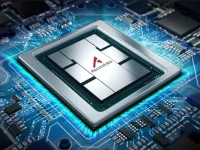Huawei appears to keep using TSMC chips despite US trade restrictions. The Chinese tech firm reportedly sourced large volumes of semiconductors for its upcoming Ascend 910C AI processor. This might represent a major advancement in Chinese AI hardware capabilities.
According to SemiAnalysis, Huawei designed the chip domestically but relies on foreign production. The company chose TSMC's 7nm process instead of similar technology from China's SMIC foundry. Huawei may have acquired about $500 million worth of these chips through another Chinese company called Sophgo.
TSMC previously faced a $1 billion fine when its components appeared in Huawei's earlier 910B processors. The Taiwan-based manufacturer subsequently stopped taking orders from Chinese companies. Experts believe Huawei either stockpiled these chips before restrictions or continues accessing them through third parties.
American trade policies aimed at limiting Chinese access to advanced technology seem less effective than intended. Major tech companies in China keep finding ways to obtain cutting-edge AI hardware through various means. They either exploit loopholes in regulations or turn to underground markets for components.
According to SemiAnalysis, Huawei designed the chip domestically but relies on foreign production. The company chose TSMC's 7nm process instead of similar technology from China's SMIC foundry. Huawei may have acquired about $500 million worth of these chips through another Chinese company called Sophgo.
TSMC previously faced a $1 billion fine when its components appeared in Huawei's earlier 910B processors. The Taiwan-based manufacturer subsequently stopped taking orders from Chinese companies. Experts believe Huawei either stockpiled these chips before restrictions or continues accessing them through third parties.
American trade policies aimed at limiting Chinese access to advanced technology seem less effective than intended. Major tech companies in China keep finding ways to obtain cutting-edge AI hardware through various means. They either exploit loopholes in regulations or turn to underground markets for components.












